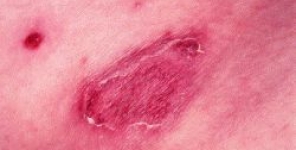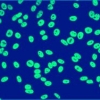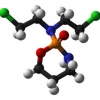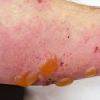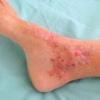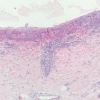Gli alleli HLA DRB1* e DQB1* si associano alla gravità della malattia nei pazienti con pemfigo volgare
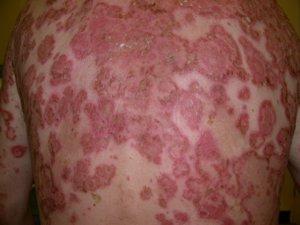 Il pemfigo volgare (PV) è una rara malattia autoimmune che coinvolge la pelle e le mucose. L'eziologia del PV è multifattoriale e comprende sia fattori genetici che ambientali, ormonali e immunologici.
Il pemfigo volgare (PV) è una rara malattia autoimmune che coinvolge la pelle e le mucose. L'eziologia del PV è multifattoriale e comprende sia fattori genetici che ambientali, ormonali e immunologici.
Obiettivi
Lo scopo di questo studio è stato quello di esaminare l'associazione tra gli alleli dell'antigene leucocitario umano (HLA) di classe II associati al PV e le variazioni nel fenotipo della malattia.
Metodi
Quarantaquattro pazienti con PV sono stati analizzati dall'Unità di Malattie Bollose in collaborazione con l'Istituto di Immunologia della Facoltà di Medicina all'Università Comenius, Bratislava, Slovacchia. Gli alleli HLA di classe II, per i quali precedentemente era stata trovata un'associazione con il PV (DRB1*04:02, DRB1*04:04, DRB1*14:54, DRB1*14:04, DRB1*14:05, DQB1*03:02 e DQB1*05:03), sono stati analizzati in base alla gravità della malattia, al tipo di PV e alla distribuzione tra i sessi.
Risultati
Sono emerse delle correlazioni tra i punteggi di gravità di PV e gli alleli HLA. Gli alleli DRB1*04:02 e DQB1*03:02 si sono associati con la forma grave di PV (P = 0.001); DRB1*04:02 è stato associato con il tipo mucocutaneo (P = 0.024) e DQB1*03:02 è stato ritrovato più frequentemente nei pazienti di sesso femminile rispetto a quelli di sesso maschile (P = 0.016). Le analisi degli altri alleli non hanno evidenziato particolari associazioni con i parametri clinici in valutazione.
Conclusioni
Gli alleli DRB1* e DQB1* influenzano la suscettibilità al PV e possono contribuire al tipo e alla gravità della malattia. Pertanto, questi risultati suggeriscono che il background genetico può contribuire al risultato della malattia, interferendo con il decorso della stessa e con l'efficacia del trattamento.
Storia della pubblicazione:
Titolo: HLA DRB1* and DQB1* alleles are associated with disease severity in patients with pemphigus vulgaris
Rivista: International Journal of Dermatology. doi: 10.1111/ijd.12418
Autori: Danka Svecova, Zuzana Parnicka, Lucia Pastyrikova, Slavomir Urbancek, Jan Luha e Milan Buc
Affiliazioni:Department of Dermatovenereology, Faculty of Medicine, Comenius University, Bratislava, Slovakia Institute of Immunology, Faculty of Medicine, Comenius University, Bratislava, Slovakia Department of Dermatovenereology, Faculty of Medicine, Slovak Medical University, F. D. Roosvelt Hospital, Banska Bystrica, Slovakia Institute of Medical Biology, Genetics and Clinical Genetics, Faculty of Medicine, Comenius University, Bratislava, Slovakia
Abstract:
Background Pemphigus vulgaris (PV) is a rare autoimmune disease that involves the skin and mucosa. The etiology of PV is multifactorial and includes genetic, environmental, hormonal, and immunological factors. Objectives The purpose of this study was to examine the relationships between human leukocyte antigen (HLA) class II alleles associated with PV and variations in the disease phenotype. Methods Forty-four PV patients were diagnosed and analyzed at the Bullous Disorders Unit in cooperation with the Institute of Immunology, Faculty of Medicine, Comenius University, Bratislava, Slovakia. HLA class II alleles previously found to be associated with PV (DRB1*04:02, DRB1*04:04, DRB1*14:54, DRB1*14:04, DRB1*14:05, DQB1*03:02 and DQB1*05:03) were analyzed according to disease severity, PV type, and gender distribution. Results Correlations emerged between PV severity scores and HLA alleles. The DRB1*04:02 and DQB1*03:02 alleles were associated with severe PV (P = 0.001); DRB1*04:02 was associated with the mucocutaneous type (P = 0.024), and DQB1*03:02 was found more frequently in female than in male patients (P = 0.016). Analyses of the other alleles did not reveal significant associations with the clinical parameters evaluated. Conclusions The HLA DRB1* and DQB1* alleles influence susceptibility to PV and may contribute to PV severity and type. These results suggest that genetic background may contribute to disease outcome by affecting the disease course and efficacy of treatment because some of the alleles were found significantly more frequently in patients with severe disease.
